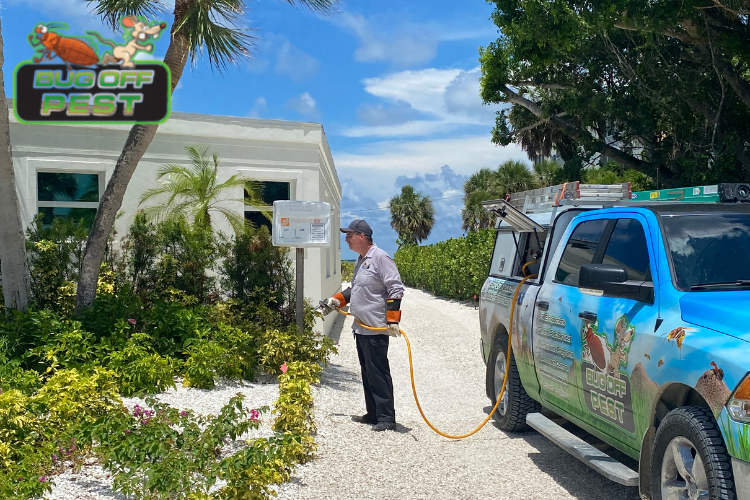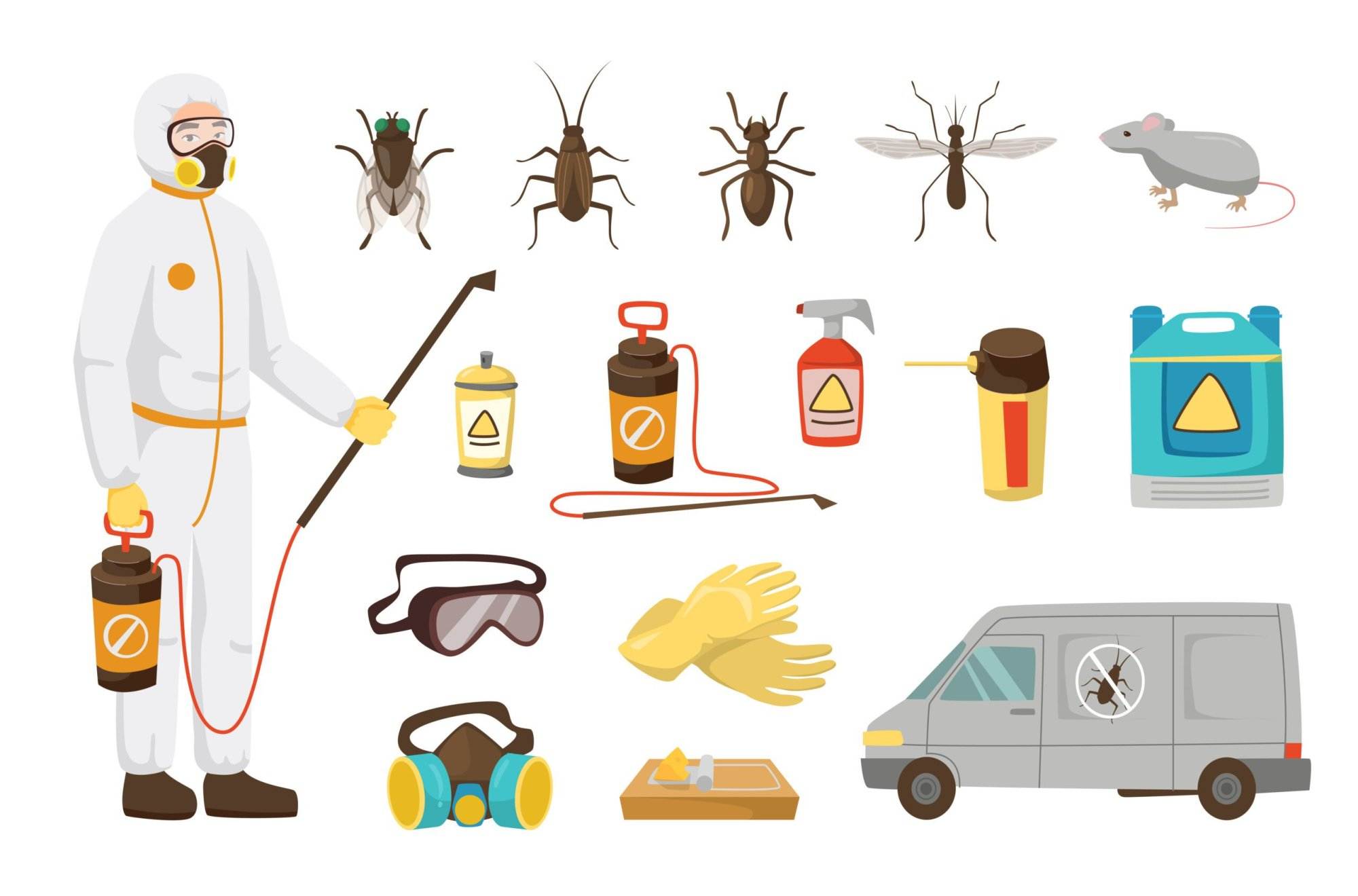Cost-effective and Reliable Exterminator in Port Charlotte for All Your Pest Control Issues
Find Out About the most recent Developments in Pest Control and How to Implement Efficient Therapy Solutions
In recent years, the field of bug control has experienced substantial improvements, driven by the need for lasting and effective therapy options. Cutting-edge methods such as Integrated Bug Management (IPM) integrate green practices with sophisticated modern technology, improving both efficacy and environmental obligation.
Eco-Friendly Parasite Control Options
In recent years, the demand for eco-friendly insect control choices has surged as property owners and services alike seek lasting options to conventional chemical treatments. This shift is driven by expanding ecological understanding and a need to reduce the health dangers connected with synthetic chemicals.

Environment-friendly pest control methods encompass a variety of strategies that prioritize making use of all-natural compounds and techniques. Integrated Bug Monitoring (IPM) is one such strategy, combining biological, cultural, and mechanical methods to take care of bug populaces while lowering reliance on chemicals (Wildlife removal services). This all natural approach stresses avoidance through habitat control and the intro of natural predators, thus cultivating a well balanced ecological community
Another popular choice is using agricultural pesticides stemmed from plants, which tend to be much less hazardous to non-target organisms. Products like neem oil and diatomaceous earth have actually acquired grip for their efficiency in regulating parasites while presenting very little dangers to human health and wellness and the setting.
Additionally, exclusion methods, such as sealing entry points and preserving tidiness, play a crucial duty in environment-friendly insect administration. By adopting these lasting practices, people and companies can efficiently handle bugs while promoting a healthier world for future generations.
Smart Technology in Parasite Monitoring
Technology is reshaping the landscape of pest monitoring, with smart modern technology emerging as a pivotal pressure in enhancing efficiency and performance - Wildlife removal services. The assimilation of Internet of Things (IoT) tools, man-made intelligence (AI), and data analytics is reinventing exactly how pest control specialists come close to infestations
Smart catches equipped with sensors can spot bug task in real-time, sending out immediate informs to operators. This enables prompt responses, lessening damage and reducing the need for extensive therapies. Furthermore, AI formulas evaluate historical information to predict bug habits, enabling proactive interventions based on environmental problems and infestation patterns.
Drones and automated automobiles are also playing a significant function in insect management, supplying airborne assessments of large locations, determining hotspots, and even dispersing targeted treatments. These modern technologies not only improve operations however also enhance security by limiting human direct exposure to potentially dangerous chemicals.
In addition, mobile applications empower customers to check bug activity and accessibility professional recommendations, promoting a joint strategy to pest management. Overall, the fostering of wise innovation is establishing a new criterion in parasite control, emphasizing data-driven decisions and lasting methods that inevitably profit both house owners and professionals alike.
Integrated Insect Management Approaches
Integrated Bug Monitoring (IPM) utilizes an all natural approach to pest control, incorporating numerous approaches to properly manage pest populaces while minimizing threats to human wellness and the atmosphere. IPM focuses on recognizing the pest life process, their natural opponents, and the community in which they grow.
Among the basic parts of IPM is monitoring pest populations through routine assessments and data collection. This allows for the identification of insect limits, figuring out when intervention is necessary. Cultural methods, such as plant cleanliness, rotation, and habitat adjustment, are essential in reducing insect frequency and promoting plant wellness.
Mechanical controls, including traps and obstacles, are likewise crucial in IPM. These techniques can physically get rid of or hinder parasites without the use of chemicals. When needed, the wise application of chemical controls is used, focusing on targeted therapies that decrease ecological influence.
Education and collaboration amongst stakeholders, consisting of farmers, bug control experts, and the community, are vital for the effective implementation of IPM techniques. By prioritizing sustainable techniques, IPM not just addresses pest issues however also fosters a healthier community.
Biological Control Techniques
Various advice biological control techniques are significantly acknowledged for their performance in handling insect populations while promoting eco-friendly equilibrium. These techniques harness all-natural predators, parasites, and microorganisms to decrease pest numbers without counting on synthetic chemicals. The intro of ladybugs can efficiently control aphid populaces, while nematodes target soil-dwelling insect larvae.
In addition, making use of microbial chemicals, such as Bacillus thuringiensis (Bt), supplies an ecologically pleasant option for managing caterpillar insects. These products specifically target pest varieties, reducing damage to beneficial insects and pollinators. Additionally, conservation biological control stresses enhancing environments for natural opponents, such as birds and valuable pests, thereby motivating their presence in agricultural systems.
Study remains to reveal cutting-edge approaches within this field, such as using scents to disrupt pest mating patterns or the growth of biocontrol agents via genetic modification. Implementing these techniques can result in sustainable bug administration practices that minimize the dependence on chemical interventions, eventually promoting healthier environments. As awareness of these methods Discover More Here expands, they are becoming indispensable parts of integrated parasite management (IPM) approaches, providing a balance between effective parasite control and environmental stewardship.
Do It Yourself Parasite Control Solutions
As property owners look for reliable methods to take on bug issues, DIY pest control services have actually gained appeal for their availability and cost-effectiveness. These approaches equip individuals to attend to infestations making use of easily offered products and techniques, usually without the demand for specialist intervention.

Furthermore, preserving correct hygiene and regular inspections can avoid insect access and nesting (Wildlife removal services). Simple practices, such as securing cracks, getting rid of food sources, and decluttering, can substantially reduce parasite populaces. Catches, both homemade and readily offered, can also offer effective solutions for monitoring and regulating particular bugs like bugs or rats

Verdict
The assimilation of environmentally friendly pest control alternatives, clever technology, and ingenious monitoring strategies offers an extensive technique to effective parasite management. By embracing Integrated Bug Monitoring (IPM) and utilizing biological control methods, together with do it yourself solutions, sustainable and liable parasite control can be achieved. These advancements not only improve the performance of pest monitoring methods yet likewise add to a much healthier setting. Carrying out these methods fosters a well balanced community while successfully addressing pest populations.
Eco-friendly pest control approaches incorporate an array of approaches that focus on the usage of all-natural substances and practices. Integrated Pest Administration (IPM) is one such strategy, combining biological, cultural, and mechanical methods to handle bug populations while lowering reliance on chemicals. As recognition of these methods expands, they are ending up being integral elements of integrated parasite administration (IPM) strategies, supplying a balance between efficient parasite control and environmental stewardship.
The combination of green insect control alternatives, clever innovation, and ingenious administration methods about pest control presents a comprehensive technique to effective parasite administration. By embracing Integrated Parasite Monitoring (IPM) and utilizing organic control techniques, along with Do it yourself options, liable and lasting insect control can be attained.